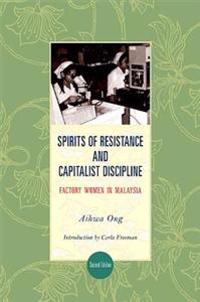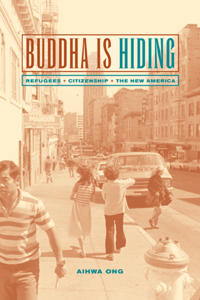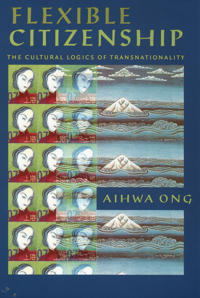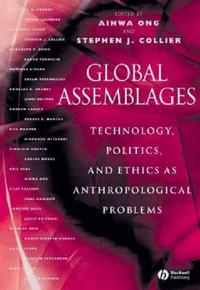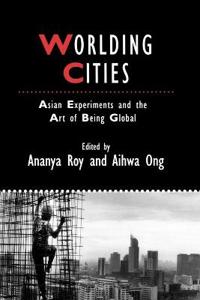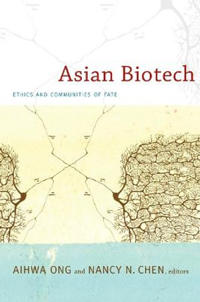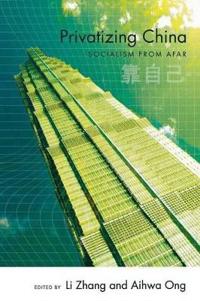Spirits of Resistance and Capitalist Discipline (Pocket)
avAihwa Ong, Carla (INT) Freeman, Aihwa Ong
ISBN: 9781438433547 - UTGIVEN: 2010-09Global Assemblages: Technology, Politics, and Ethics as Anthropological Pro (Övrig)
avEditor:Aihwa Ong, Editor:Stephen J. Collier
ISBN: 9780470696569 - UTGIVEN: 2008-05-31Buddha is Hiding (Häftad)
avAihwa Ong
ISBN: 9780520238244 - UTGIVEN: 200308Fleeing the murderous Pol Pot regime, Cambodian refugees arrive in America as at once the victims and the heroes of America's misadventures in Southeast Asia; and their encounters with American citizenship are contradictory as well. Service providers, bureaucrats, and employers exhort them to be sel[...]
Global Assemblages: Technology, Politics, and Ethics as Anthropological Pro (Inbunden)
avEditor:Aihwa Ong, Editor:Stephen J. Collier
ISBN: 9780631231752 - UTGIVEN: 2004-10-31Flexible Citizenship (Häftad)
avAihwa Ong
ISBN: 9780822322696 - UTGIVEN: 199904Are nation-states being transformed by globalization into a single globalized economy? Do global forces herald a postnational millennium? This text explores such questions with a focus on the links between the cultural logics of human actions and on economic and political processes in Asia-Pacific.[...]
Global Assemblages: Technology, Politics, and Ethics as Anthropological Problems (Häftad)
avAihwa Ong, Stephen J. Collier
ISBN: 9781405123587 - UTGIVEN: 200410This title provides an exciting approach to some of the most contentious issues in discussions around globalization - bioscientific research, neoliberalism, governance - from the perspective of the "anthropological" problems they pose; in other words, in terms of their implications for how individua[...]
Worlding Cities: Asian Experiments and the Art of Being Global (Häftad)
avAnanya Roy, Aihwa Ong
ISBN: 9781405192767 - UTGIVEN: 201108Worlding Cities is the first serious examination of Asian urbanism to highlight the connections between different Asian models and practices of urbanization. It includes important contributions from a respected group of scholars across a range of generations, disciplines, and sites of study. Descri[...]
Worlding Cities: Asian Experiments and the Art of Being Global (Häftad)
avAnanya Roy, Aihwa Ong
ISBN: 9781405192774 - UTGIVEN: 2011-07-31Asian Biotech (Pocket)
avAihwa (EDT) Ong, Nancy N. (EDT) Chen, Aihwa (EDT) Ong
ISBN: 9780822348092 - UTGIVEN: 2010-10Providing the first overview of Asia's emerging biosciences landscape, this timely and important collection brings together ethnographic case studies on biotech endeavours such as genetically modified foods in China, clinical trials in India, and stem cell research in Singapore, South Korea and Taiw[...]
Privatizing China (Pocket)
avLi (EDT) Zhang, Aihwa (EDT) Ong, Li (EDT) Zhang
ISBN: 9780801473784 - UTGIVEN: 2008-04Neoliberalism as Exception (Pocket)
avOng, Aihwa
ISBN: 9780822337485 - UTGIVEN: 2006-08-22Neoliberalism is commonly viewed as an economic doctrine that seeks to limit the scope of government. Some consider it a form of predatory capitalism with adverse effects on the Global South. In this groundbreaking work, Aihwa Ong offers an alternative view of neoliberalism as an extraordinarily mal[...]

